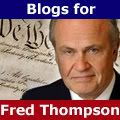Despite the celebration last week that the Plame suit against the Bush Administration (blogged about in Plame Suit Flames Out) being dismissed, the decision is being appealed to the DC Circuit Court.
Erwin Chemerinsky (professor of law at Duke University Law School) and John Eastman (Dean of Chapman University Law School) are regular guests on Hugh Hewitt's radio show - usually on Wednesday. Hugh refers to the pair as The Smart Guys. Today the issues were executive privilege and the Plame-Wilson suit. Erwin is one of the attorney's for the Plame's and argued the case in federal district court.
(from the transcript)
EC: I was, I was the lawyer who argued the case in federal district court. I continue to be the lawyer for Valerie Plame Wilson and Joe Wilson, and I will be involved in writing and arguing the case on appeal in the D.C. Circuit.
HH: And your grounds for appeal will be what?
EC: Well, the Privacy Act does not apply to the offices of the president and the vice president. That was conceded by all of the parties in this litigation, and the judge recognized it. And of course, at least as to Cheney, Libby and Rove, the Privacy Act provides no remedy. And our argument is a statute that doesn’t apply can’t be used to preclude a civil suit under the Constitution. Also, we have four Constitutional claims, a privacy claim, but also a 1st Amendment claim, an equal protection claim, and a due process claim. And our argument is that at most, the Privacy Act should preclude the privacy claim, but not the others.So, there's the basis for appealing the dismissal of the suit. When asked if he thought Richard Armitage had committed a crime, Chemerinsky said yes:
HH: But let me ask you, do you think Richard Armitage committed a crime?
EC: Yes.
Chemerinsky clings to the belief that Valerie Plame was a covert agent, stating that he knows for a fact that she held that designation:
HH: But it seems to me that…what’s obvious to all of us is that Fitzgerald concluded there was no crime in the revelation of Valerie Plame’s identity, because she was not covert, and it was not what the intent of the law was intended to do in this instance, and that therefore, Armitage wasn’t charged, because there was no crime, and that therefore, Libby didn’t commit a crime, and the Grand Jury ought never to have met, because he knew, Fitzgerald did, before the investigation even opened, that Armitage was a leaker, and he never charged him, therefore no charges and no Grand Jury should have happened.
EC: Some of what you said is just false, some I don’t know. First, there’s no doubt whatsoever that Valerie Plame was a covert operative. The attorney for the United States government said that in open court on May 17th, in the District of Columbia. So I don’t think we can dispute that she’s a covert agent. The United States government said that they would agree that at least for a certain period of time, she was a covert operative.
HH: Erwin, we certainly can dispute that, because it was not made in a context at when it could be challenged to an impartial observer. And of course, the United States government’s going to say that in that circumstance. I don’t believe it for a second, I’ve never been persuaded of that, and I think it is nonsense to ask my audience to take that on fact. It’s a disputed issue.
EC: I’ll tell you, I mean, you’ve known me a long time, whatever trust you have in me, I know as fact she was a covert operative.
From what I heard during the discussion and what I've read and heard previously on this matter, I'm still not convinced that Plame was a covert agent as defined by the law. What we do know is that the special prosecutor did not charge or indict anyone for revealing Plame's identity. That leads me to believe Fitzgerald didn't think she fit the definition of a covert agent or that anyone who revealed her identity didn't commit a crime as defined by the law.
Something else that I believe gets overlooked in this debate - someone revealing Plame's identity has to know she held the distinction of being a covert agent. Simply saying she works for the CIA reveals nothing except that she works at the CIA.Erwin is a liberal, and that comes out clearly in most of the positions he takes week after week on judicial issues. He also doesn't like President Bush and I'm sure he'd love to be the attorney who helped to hang a crime on the President or someone in the Administration.
I still think they are tracking a cold trail, but maybe we'll still get to see Plame and Wilson cross examined in open court.
To read the rest of the interview, follow the transcript link above, or listen to the audio here (app. 30 minutes).

|